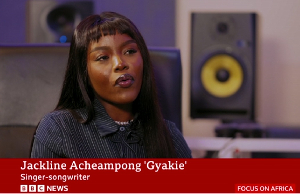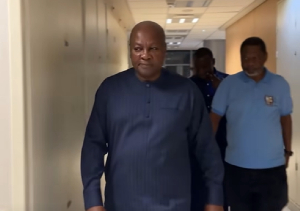by dr. Samuel adjei sarfo
The recent sentencing by Ghana’s Supreme Court of certain Ghanaian citizens to various prison terms is problematic insofar as it directly impinges on the freedom of speech in the Ghanaian democratic context. That the high court has the power to cite citizens for contempt is not in doubt. That power is granted by Article 19(12) of Ghana’s Constitution which recognizes the power of superior courts to punish “a person for contempt of itself notwithstanding that the act or omission constituting the contempt is not defined in a written law and the penalty is not so prescribed.”
Thus in the exercise of the peculiar powers to contemn these citizens, the Supreme Court could be said to have acted within its jurisdictional powers. However, any act carried out by any branch of government must be legitimate in the context, not only of the letter of the constitution, but also in its spirit, taking into account the evolving nature of our public policy. It is not enough that a particular action is justified by citation to a single constitutional clause. Rather, such an action should fall in tandem with the generic democratic dispensation prevailing in the country, conform to international law, and be in accord with the tenets of free speech entrenched in the constitution. Finally, such an action should conform to the directive principles of our national policy and inspire a movement toward a more inclusive and deliberative society.
It is obvious that by granting such sweeping powers of contempt to the high court, the Constitution of Ghana confers within the third branch of government arbitrary powers hitherto not granted to the other co-equal branches of government. This is contrary to the tested concept that of all the branches of government, the unelected judiciary should be the least intrusive in its exercise of power, having no force nor citizens to enforce its edicts. More dangerously, the mere fact that this contempt power can be based on no written law nor prescribed punishment leaves open the possibility that it can be regularly abused by the courts to send anyone and everyone to prison, chill the marketplace of ideational interaction and re-impose the culture of silence prevalent under the previous dictatorships. It is also in contravention of procedural law enshrined in analogous chapters of the constitution that no person shall be convicted except on the basis of due process and in accordance with existing law for which a punishment is clearly prescribed. In effect, such arbitrary powers granted to the court by the constitution is unheard of in civilized societies and are per se inimical to our democratic aspirations, leaving open the proliferation of hunch laws, kangaroo proceedings and self-serving interpretations.
More importantly, the court’s powers of contempt, as recently exercised in the jailing of certain opinion leaders and journalists, affront the universal principle of freedom of speech as guaranteed in Chapter 5 of the constitution of Ghana and in the United Nations Declaration of Human and Peoples’ Rights. The court’s posture also runs afoul of the legislative decision to decriminalize free speech as evidenced in the repeal of the Criminal Libel Law in 2001 which helped bring about an explosion in the media landscape of Ghana.
Thus the historical development of the Ghanaian jurisprudence points to an evolution towards more freedoms of speech, not less. And this is as it should be, given that this enhancement of the right to speech tracts its direction from the overall international purview and our societal ethos.
The direction travelled by the enhancement of speech rights has celebratory affirmation in the seminal case of New York Times v. Sullivan, 376 U.S. 254 (1964). In this case, the Supreme Court of the United States stated, “Even a false statement may be deemed to make a valuable contribution to public debate, since it brings about the clearer perception and livelier impression of truth, produced by its collision with error. Debate on public issues should be uninhibited, robust, and wide-open, and it may well include vehement, caustic, and sometimes unpleasantly sharp attacks on government and public officials.”
Furthermore, in setting the outer boundaries of free speech, the United States Supreme Court, in Brandenburg v. Ohio, 395 U.S. 444 (1969), held that government cannot punish inflammatory speech unless that speech is directed to inciting, and is likely to incite, imminent lawless action. In this case, Clarence Brandenburg, a Ku Klux Klan (KKK) leader in rural Ohio, contacted a reporter at a Cincinnati television station and invited him to come and cover a KKK rally in Hamilton County in the summer of 1964. Portions of the rally were filmed, showing several men in robes and hoods, some carrying firearms, first burning a cross and then making speeches. One of the speeches made reference to the possibility of "revengeance" [sic] against "niggers," "Jews," and those who supported them. One of the speeches also claimed that "our President, our Congress, our Supreme Court, continues to suppress the white, Caucasian race," and announced plans for a march on Washington to take place on the Fourth of July. Brandenburg was convicted of advocating violence under Ohio's criminal syndicalism statute for his participation in the rally and for the speech he made.
But the U.S. Supreme Court reversed Brandenburg's conviction, holding that government cannot constitutionally punish abstract advocacy of force or law violation. The court then instituted The Brandenburg test, also known as the imminent lawless action test with the three distinct elements of intent, imminence, and likelihood. This test has been so vigorously enforced that no speech, no matter how inflammatory or prejudicial is ever punished in the United States. Latter rulings further ensconced the right to speech in alegal body armor heretofore un-pierced by the courts.
Taken together, the two aforementioned cases attest to the limitless latitude of free speech within truly democratic societies, and provide some guidance as to its sophistication, depth and complexity. These societies set ample model for Ghana’s democratic project. Thus although the courts may have certain rights to punish their contemnors, these rights ought to be set in the cusp of the highest standards of strict scrutiny, and only used sparingly when a person’s speech or conduct directly threaten proceedings inside the court itself. In other words, the court should be seen to be exercising its powers of contempt with the highest level of circumspection, and with application to its prudential powers of exceptional wisdom.
This is more especially because freedom of speech is not a privilege that can ever be circumscribed by the bench. Neither is it abridged arbitrarily by some clause or clauses emanating from some judges’ purview of the constitution. It is an inherent sovereign and human right that is only tampered by careful resort to democratic principles, jurisprudential history, due process and the prudential powers of the judiciary.
By jailing the journalists, the Supreme Court has opened the Pandora box of generational criticism instead of its arduous intent to keep it shut. It has distracted the attention of the court and set a dangerous precedence to expose the posture of the high court to ridicule for generations to come. It has defied the principles of due process, alienated itself from the balancing benefits of constructive criticism and sunk the standards of justice to near medieval times wherein trial by ordeal was the stock in trade. Finally, it has diverted the attention of the whole nation and exposed itself to deep questions about its own mental equanimity and ability to judiciously answer the pertinent questions of the election petition deserving of it visceral attention.
Ghana’s parliament should now call an emergency session to legislate clear standards for the court, limiting its arbitrary powers and enacting clear rules that will accord with our constitutional aspirations and democratic dispensation. This is because any speech, no matter how dangerous, is better for our democracy than the culture of silence of the dark yesteryears.
Samuel Adjei Sarfo, a general legal practitioner, holds a doctoral degree in Law. You can email him at sarfodjei@yahoo.com
Opinions of Wednesday, 10 July 2013
Columnist: Sarfo, Samuel Adjei
The supreme court blundered by contemning free speech
Entertainment













